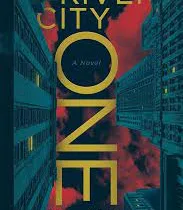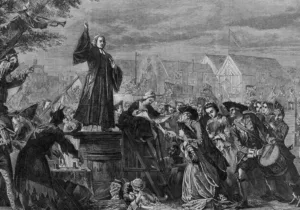Foreign policy is commonly described as the pursuit of vital national interests in terms of the interests of other states. The quest for such interests is typically defined from the perspective of government leaders, with emphasis given to doctrines, strategies, and conceptual paradigms. Scholarship reinforces this top-down approach through its emphasis on theories, concepts, and ideologies that help to structure the design and implementation of foreign policy. Much less concern is placed on accountability and assessment of policies, especially those designed to advance humanitarian values.
In this book, Robert Kaplan shows the important role of a contract worker in advancing American interests and values. The Good American is the story of how one individual, a high school dropout, can affect governmental actions that seek to reduce human misery and advance human rights. Because of his success in promoting humanitarian values, Kaplan calls Bob Gersony the US government’s “greatest humanitarian.”
Kaplan, a prolific author of books and articles on foreign policy and global politics, is an influential chronicler of foreign affairs. In his writings he provides a powerful defense of the realist perspective of world politics and offers penetrating assessments of regional conflicts (e.g., Balkan Ghosts), humanitarian crises (e.g., Surrender or Starve), US foreign policy (e.g, The Arabists), and post-Cold War conflicts (e.g., The Coming Anarchy). Having been a fan of Kaplan’s many writings, I consider this book his most important contribution—in part because it shows how American political and security interests can be reconciled with the advance of human rights and humanitarian values.
Robert Gersony, the son of Orthodox Jewish parents, grew up in New York City. He found formal studies difficult and never finished high school. In 1966 he entered the US Army and served in Vietnam in a casualty reporting unit. Since he was adept at numbers and record-keeping, he received the Bronze Star for his outstanding service. His Vietnam experience taught him the importance of factual knowledge as opposed to abstract, theoretical knowledge. His ground-level, fact-based methodology was to influence his approach in subsequent humanitarian projects with the Department of State, the US Agency for International Development, the United Nations, as well as other relief and development organizations.
After serving in Vietnam, Gersony moved to Guatemala, where he lived for seven years and started a for-profit language school. In 1976 he began a 40-year career as a US government consultant, carrying out 54 projects in some of the most difficult and dangerous regions of the world, including Bosnia, Chad, Colombia, El Salvador, Ethiopia, Gaza, Mozambique, Nepal, North Korea, Somalia, Sudan, and Uganda. The challenge in each of these assignments was to ascertain truth—that is, the factual, real conditions in each locality. His methodology for truth-seeking was to carry out extended interviews with carefully selected persons—refugees, peasants, and workers—and record his observations by hand on a notebook. Since his work frequently involved traveling to distant, remote areas, Gersony, along with his driver/translator, worked long hours seven days a week, sleeping on cots or sleeping bags and eating one meal a day to maximize time with interviewees during daylight hours. Only after carrying many interviews would he seek to analyze and synthesize the data. His findings emerged not from theorizing but from “the bottom up.” Gersony’s quest for truth about a place was rooted in the belief that there is much wisdom when you listen to ordinary people.
Why was Gersony’s work influential? Because his findings were authoritative, guided by fieldwork that was credible. For example, in l984 he discovered a mass murder in the Luwero Triangle in central Uganda. This discovery led to the fall of the Milton Obote regime and the eventual rise of Yoweri Museveni. And in 1991, USAID asked him to investigate how North Korea used food aid. Widespread famine had erupted in the 1990s and was killing tens of thousands of peasants. To alleviate suffering, Western nations provided significant food aid but had little information on whether or not it reached those most in need. Thus, Gersony’s mission was to ascertain whether the aid was reaching peasants. After interviewing North Korean refugees along the country’s border, he concluded that most aid was being used to prop up the dictatorship rather than to alleviate hunger. In response, humanitarian organizations reduced food aid and established practices designed to reduce the diversion of aid to the military.
Gersony’s investigations were especially important to the US government when they challenged conventional wisdom. For example, in the l980s a violent conflict emerged between the Marxist Mozambique government (Frelimo) and a group of revolutionaries (Renamo) seeking to topple the regime. Gersony interviewed refugees fleeing the fighting and found that the guerrillas were carrying out major human rights abuses. He estimated that they had killed some 100,000 persons. After he presented his findings to Secretary of State George Shultz, the Reagan administration resisted calls to support the guerrillas and instead engaged with Frelimo, which eventually abandoned its Marxist doctrine.
According to Kaplan, a sound foreign policy demands both realism and idealism. He writes:
Realism never dies because it is about limits, constraints, and hard choices. But idealism never dies because, ever since the morally urgent messages of the Hebrew prophet Isaiah and the Greek playwright Euripides, it has appealed to the human spirit. The path forward requires mingling the sensibilities of both.
Kaplan observes that Gersony spans the gap “between idealism and realism, between human rights and national interest.” Because he internalized the interests of state, he was effective in making US foreign policy “a bit smarter and a bit more humane.”
For those concerned with humanitarianism and foreign policy, this is an important, inspiring book. It shows how one individual, guided by the quest for truth backed by courage, can help alleviate human suffering. Kaplan concludes:
To call Gersony great is to diminish him, since greatness usually involves an unusual degree of ambition, concealed or unconcealed. Gersony achieved his ambition, over and over again, by recording people’s stories in his notebooks while under a tree or inside a tent somewhere with the dulling heat, buzzing flies and wafting dust intensifying the silence. That was his glory.






 Sponsor a student for Christianity & National Security 2024
Sponsor a student for Christianity & National Security 2024